Are you looking to reassure your clients about the importance of confidentiality in your business relationships? It's crucial to communicate your commitment to safeguarding their sensitive information effectively. In this article, we'll explore essential tips and a practical template for crafting a letter that guarantees confidentiality and builds trust. Ready to learn how to enhance your client communications? Read on!

Clear confidentiality clause
A clear confidentiality clause establishes the parameters of privacy for all sensitive information shared between parties, ensuring protection against unauthorized disclosure. This clause typically defines confidential information, outlining specifics such as business strategies, financial data, client identities, and proprietary technology. It highlights obligations for both parties, emphasizing that any confidential information must be safeguarded and returned or destroyed upon termination of the agreement. Violation of this clause may lead to legal repercussions and liability for damages associated with the unauthorized release of confidential material, reinforcing trust in professional relationships.
Client data protection measures
Client data protection is paramount in today's digital age, ensuring sensitive information remains secure from breaches or unauthorized access. Implementing robust encryption protocols, such as AES-256 (Advanced Encryption Standard) for data storage, protects confidential client files. Regular audits and compliance checks with regulations like GDPR (General Data Protection Regulation) and CCPA (California Consumer Privacy Act) bolster legal adherence and client trust. Secure access controls, including multi-factor authentication (MFA), ensure only authorized personnel access sensitive data. Additionally, ongoing employee training programs on data privacy best practices, scheduled monthly, create awareness and reduce the risk of accidental data exposure. Data backups, using reliable cloud services like AWS (Amazon Web Services), ensure recovery from unforeseen data loss incidents, maintaining business continuity.
Compliance with privacy laws
Securing client confidentiality is essential for businesses operating under privacy laws, such as the General Data Protection Regulation (GDPR) in Europe or the California Consumer Privacy Act (CCPA) in the United States. Organizations are tasked with protecting sensitive information, including personal data like names, addresses, and financial details, which, if mishandled, can lead to significant legal repercussions. Compliance frameworks often require regular audits to ensure that data handling practices align with regulatory standards, including data encryption, access control, and employee training. Failure to comply may result in hefty fines, loss of customer trust, and potential legal actions, emphasizing the importance of a structured approach to data privacy and confidentiality.
Limited access provisions
Limited access provisions ensure that sensitive client information remains secure and only available to authorized personnel. Access restrictions are enforced through stringent protocols, including multi-factor authentication and user role assignments. Data access is limited to specific departments such as legal, finance, and compliance, with defined timeframes for access based on project requirements. Regular audits are conducted at designated intervals to evaluate adherence to privacy policies and identify potential vulnerabilities. Additionally, training sessions on data security are organized for employees to reinforce the importance of confidentiality in maintaining client trust and safeguarding proprietary information.
Obligations for breach notification
Client confidentiality assurance is crucial for maintaining trust in business relationships. This involves safeguarding sensitive information such as personal data, trade secrets, and proprietary methods across various industries. Establishing obligations for breach notification is necessary, particularly for organizations under regulations like the General Data Protection Regulation (GDPR) that emphasizes rapid disclosure. A breach may necessitate reporting to regulatory authorities within 72 hours, alongside notifying affected clients, especially if there is a risk to their rights and freedoms. This proactive approach helps mitigate risks, promotes transparency, and demonstrates a commitment to ethical practices, thereby enhancing client relationships and compliance with legal requirements.

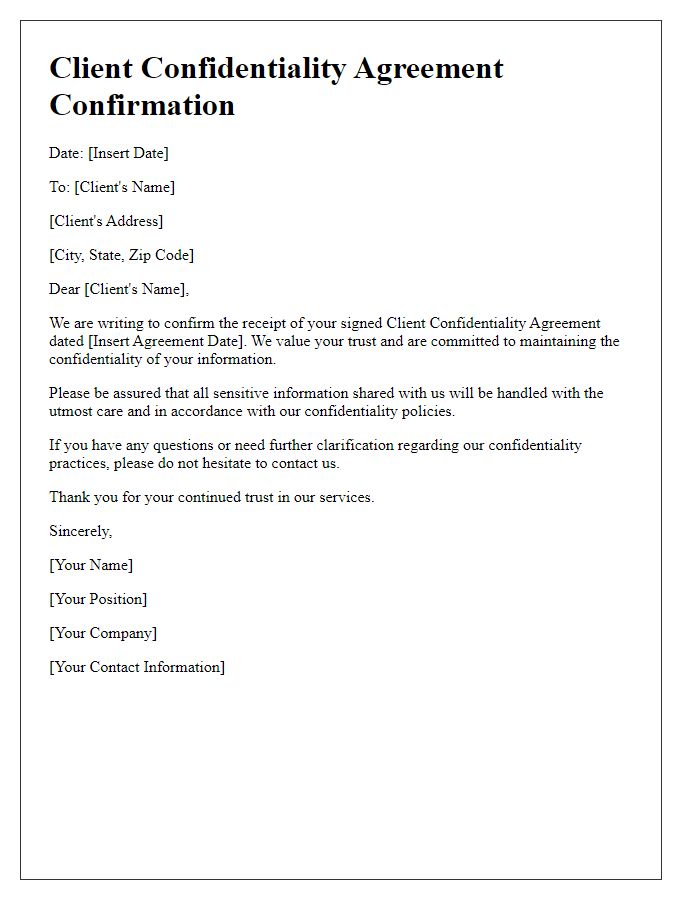
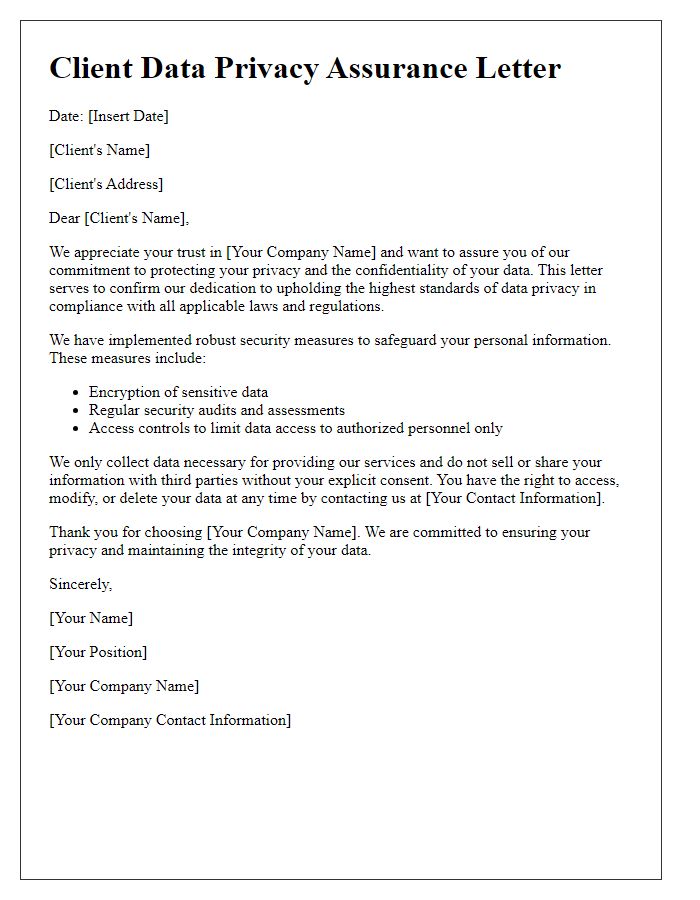
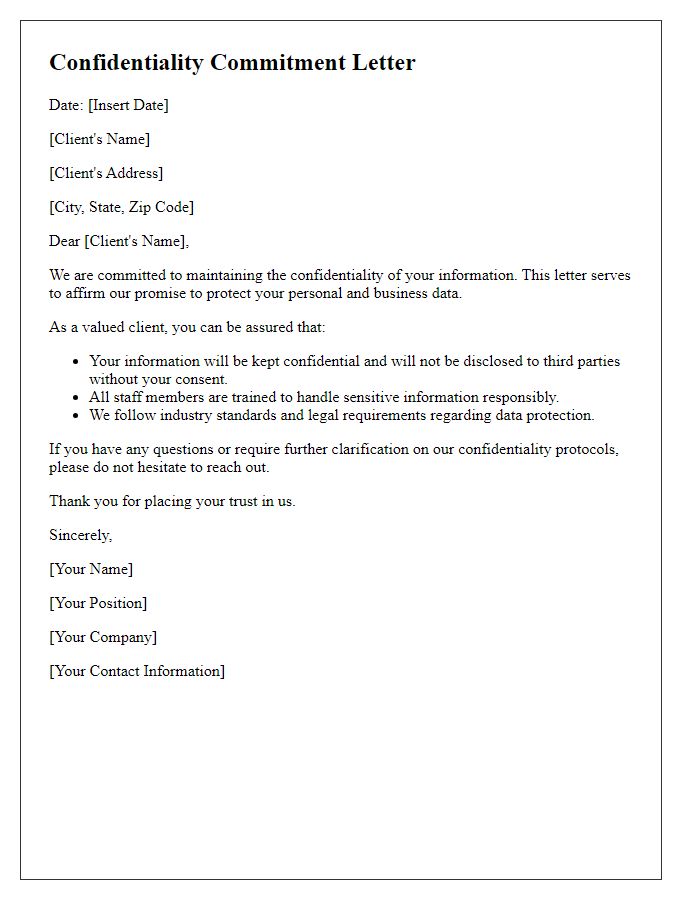
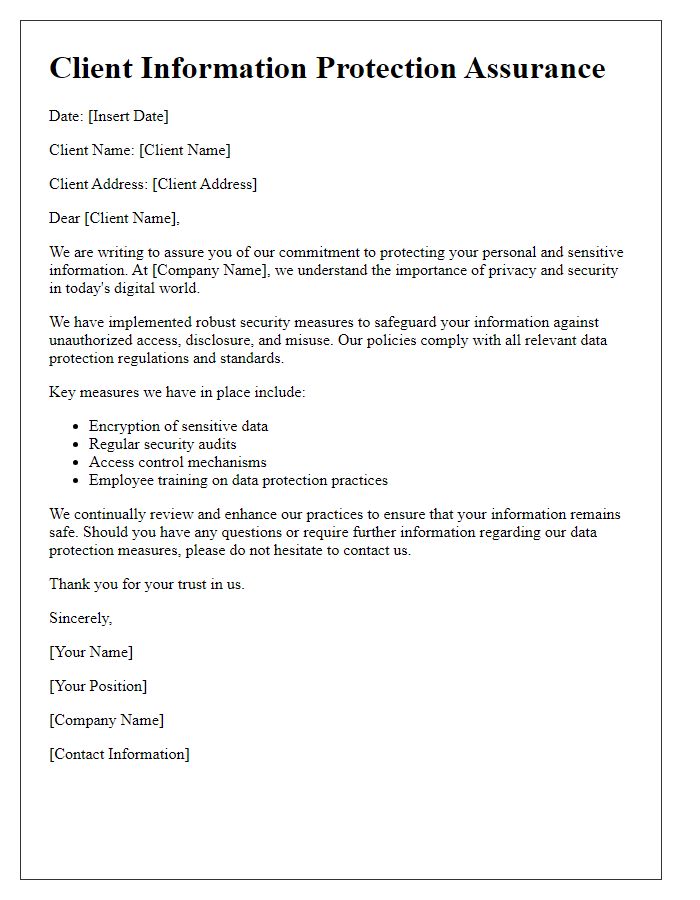
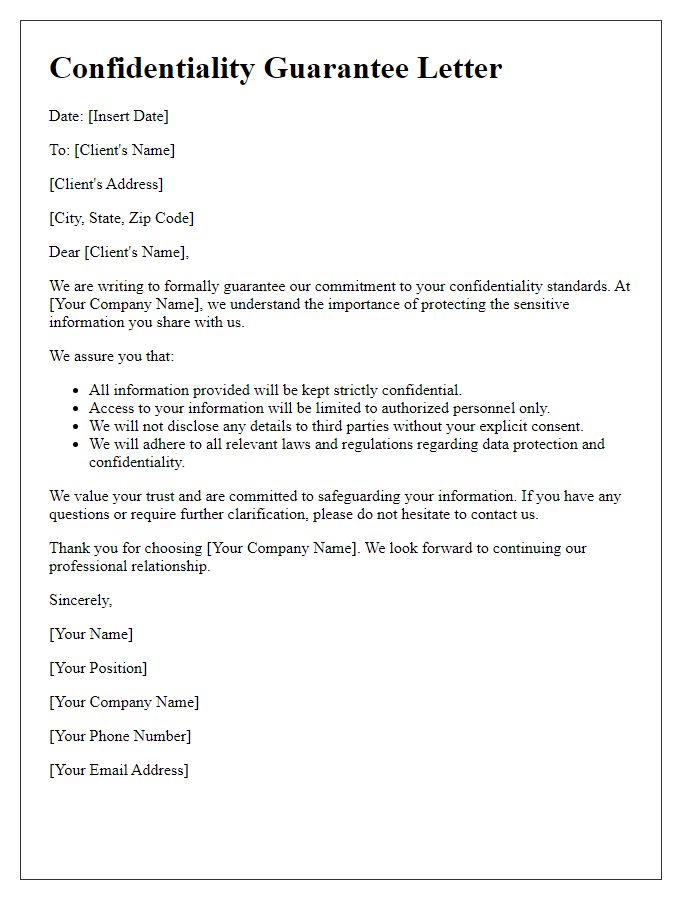
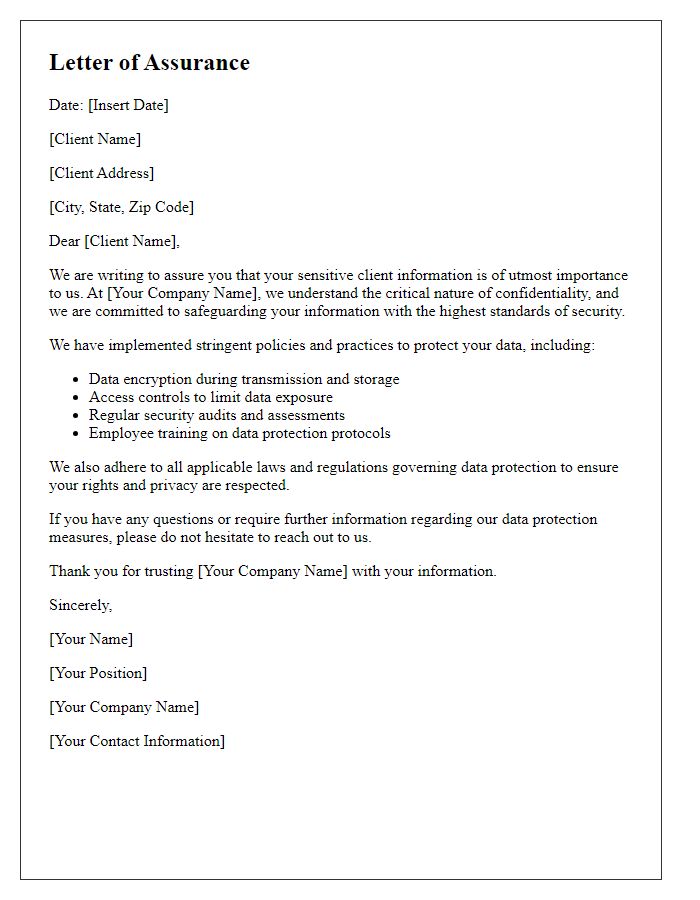
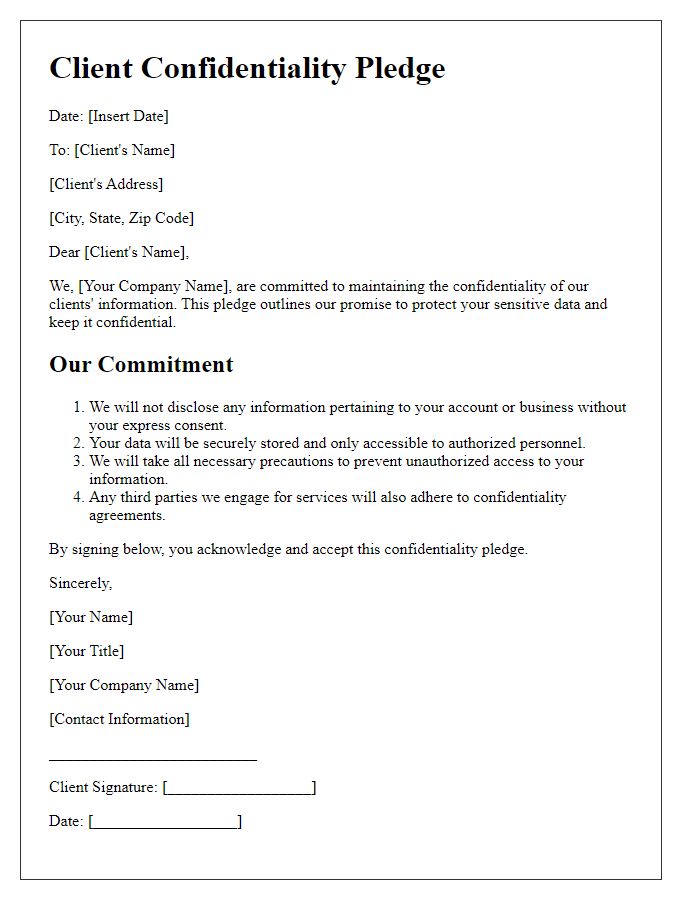
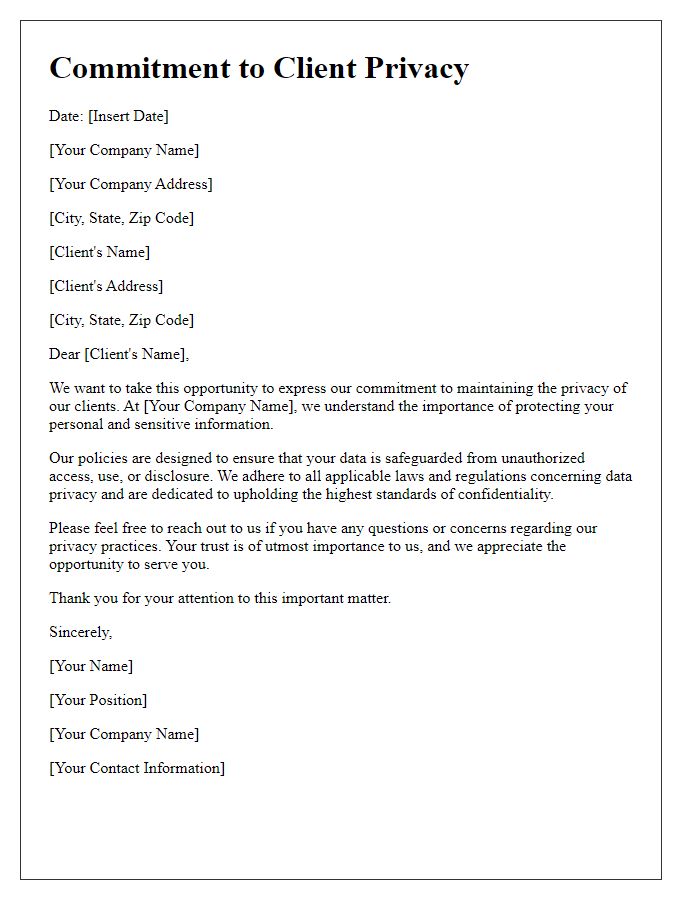
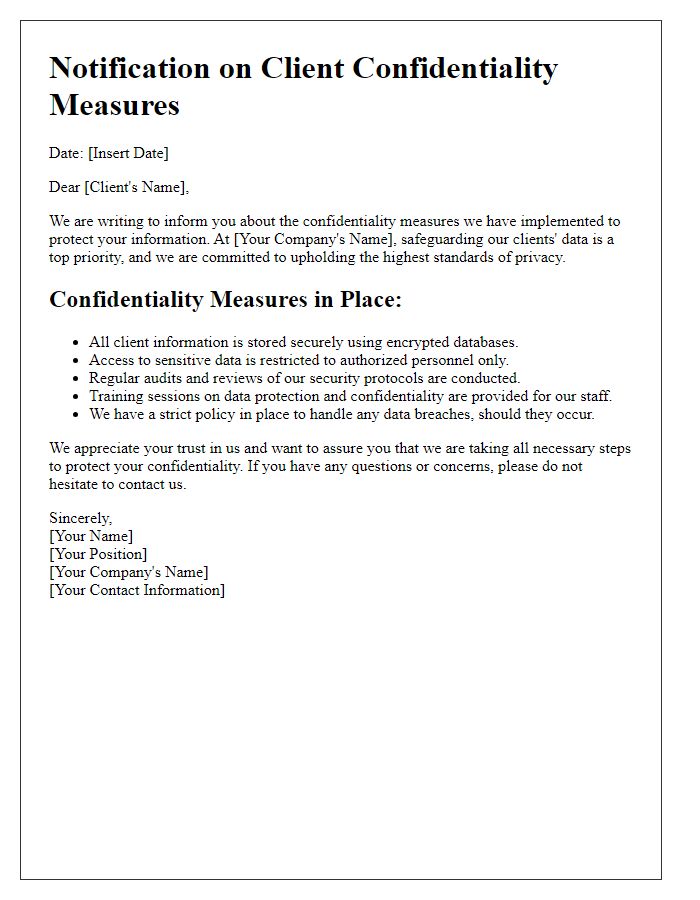
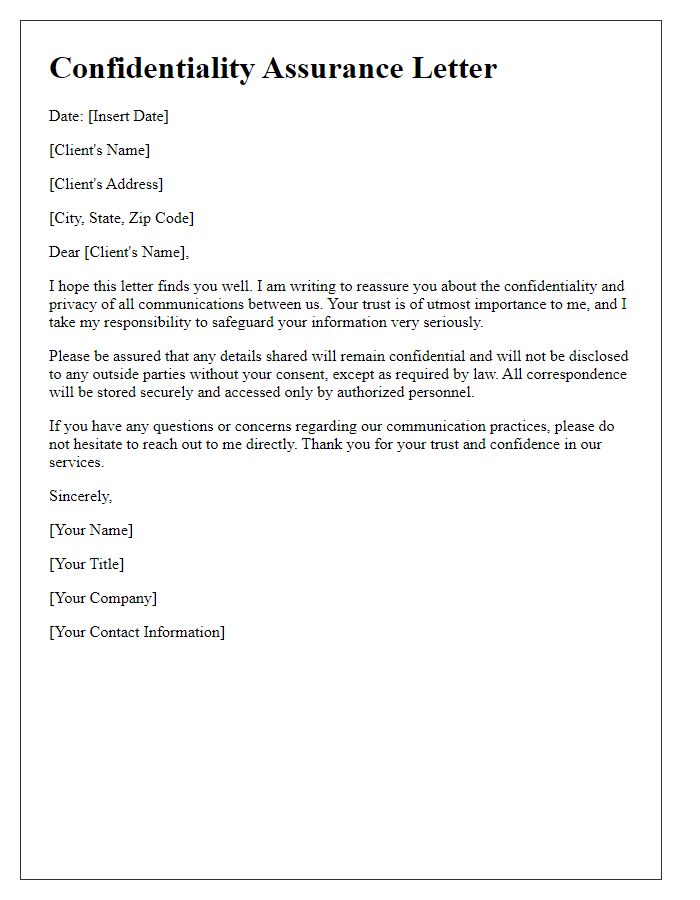

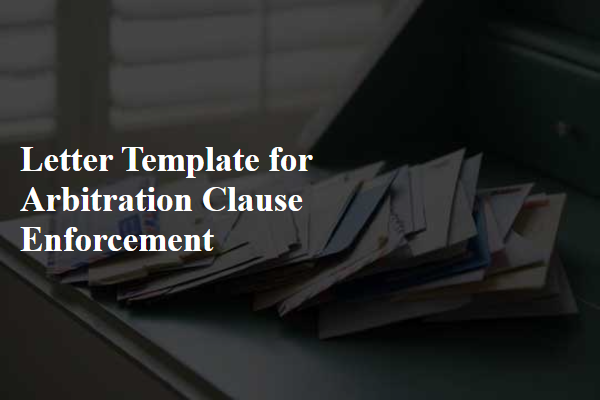
Comments